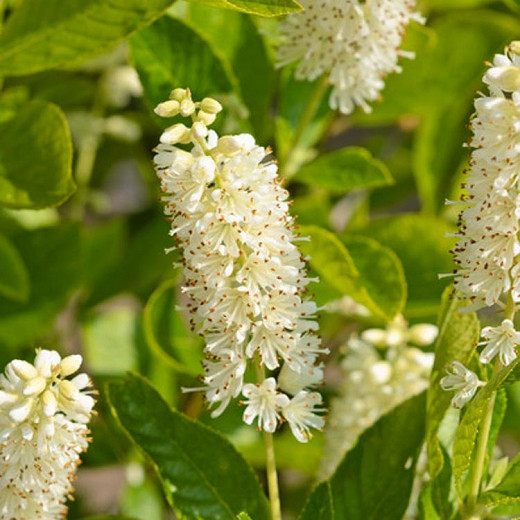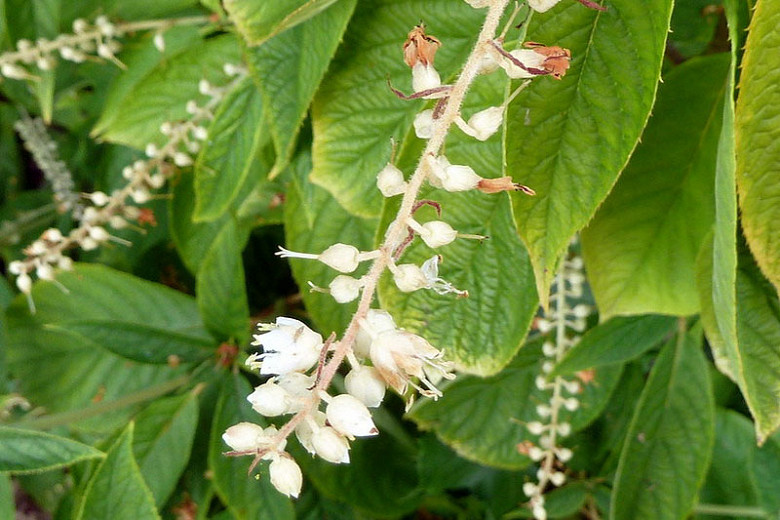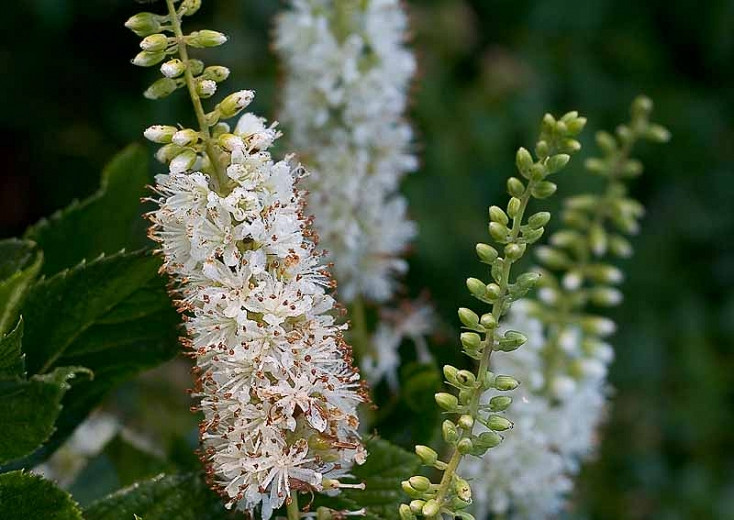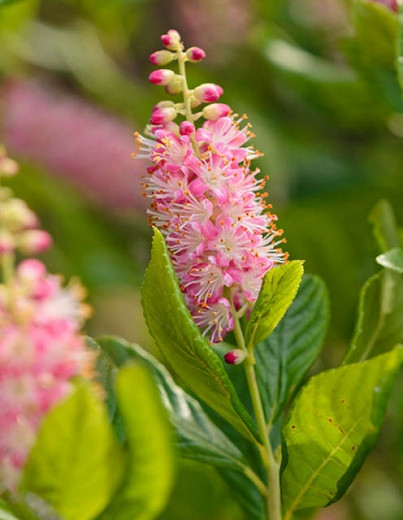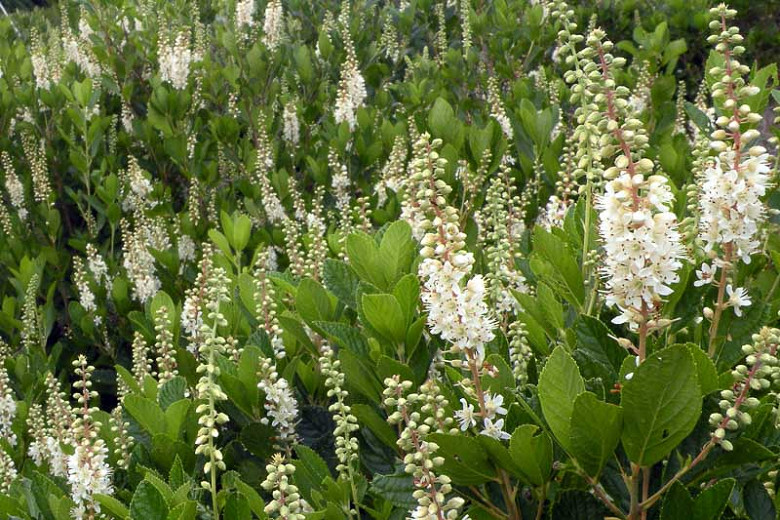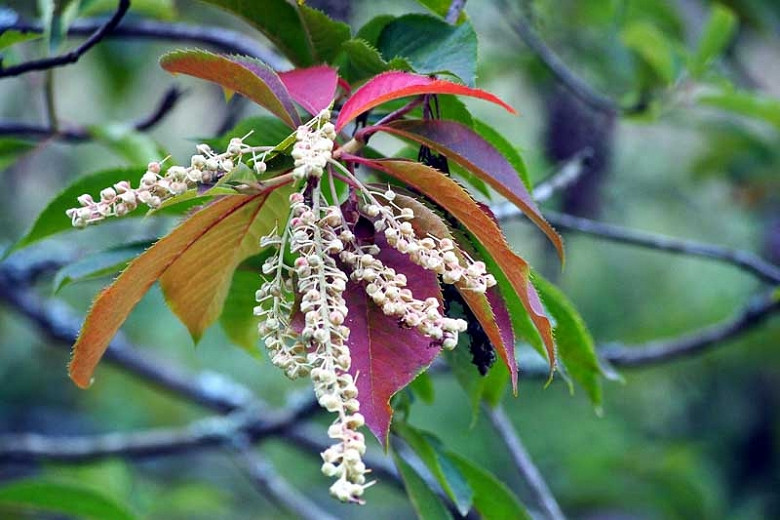Clethra alnifolia Hummingbird (Summersweet)
Clethra alnifolia 'Hummingbird' (Summersweet) is a gorgeous, compact, slowly spreading, deciduous shrub that features bottlebrush spikes of extremely fragrant white flowers which bloom for 4-6 weeks in mid to late summer. Opening from bottom to top, they are very attractive to bees, butterflies, and other pollinators, at a time of the year when there's not a wealth of nectars to choose from. The flowers give way to spikes of dark brown fruits which persist into winter, providing continuing interest. The serrated, glossy, dark green foliage turns golden-yellow in fall. One of its most attractive characteristics is to produce great blooms in shady locations. 'Hummingbird' is a popular Summersweet cultivar because it is more compact and more floriferous than the species. A dependable shrub that is native from coastal Maine south to north Florida and then west to the eastern edge of Texas.
- Densely-branched, rounded, this summer-flowering shrub spreads slowly by suckers and typically grows 2-4 feet tall (60-120 cm) with a spread of 3-5 ft. (90-150 cm). It enjoys excellent resistance to insects and diseases.
- This plant is best grown in full sun to part shade in average, medium to wet, acidic, sandy soils. Full shade is tolerated. Do not let the soil dry out! Clay and wet soil tolerant!
- Recipient of the prestigious Award of Garden Merit of the Royal Horticultural Society and winner of the Gold Medal award of The Pennsylvania Horticultural Society
- Flowers attract butterflies and hummingbirds. Clethra alnifolia is rarely bothered by deer!
- Mass in mixed shrub borders for dramatic summer blooms. Great flowering shrub for shade or woodland gardens or along stream banks or ponds. May be naturalized in cottage gardens, wild gardens, or naturalized areas.
- Promptly remove root suckers unless a naturalized look is desired
- This shrub flowers on new wood, so pruning for shape is best done in spring.
- Propagate by cuttings.
Requirements
| Hardiness | 3 – 9 |
|---|---|
| Heat Zones | 1 – 9 |
| Climate Zones | 1, 1A, 1B, 2, 2A, 2B, 3, 3A, 3B, 4, 5, 6, A2, A3 |
| Plant Type | Shrubs |
| Plant Family | Clethra |
| Exposure | Full Sun, Partial Sun, Shade |
| Season of Interest | Summer (Mid,Late)Fall |
| Height | 2' – 4' (60cm – 120cm) |
| Spread | 3' – 5' (90cm – 150cm) |
| Spacing | 36″ – 60″ (90cm – 150cm) |
| Water Needs | Average |
| Maintenance | Low |
| Soil Type | Clay, Loam, Sand |
| Soil pH | Acid |
| Soil Drainage | Moist but Well-Drained |
| Characteristics | Fragrant, Plant of Merit, Showy |
| Tolerance | Clay Soil, Deer, Salt, Wet Soil |
| Attracts | Bees, Butterflies, Hummingbirds |
| Garden Uses | Beds and Borders, Ponds and Streams, Rain Gardens |
| Garden Styles | Coastal Garden, Informal and Cottage, Prairie and Meadow, Traditional Garden |
